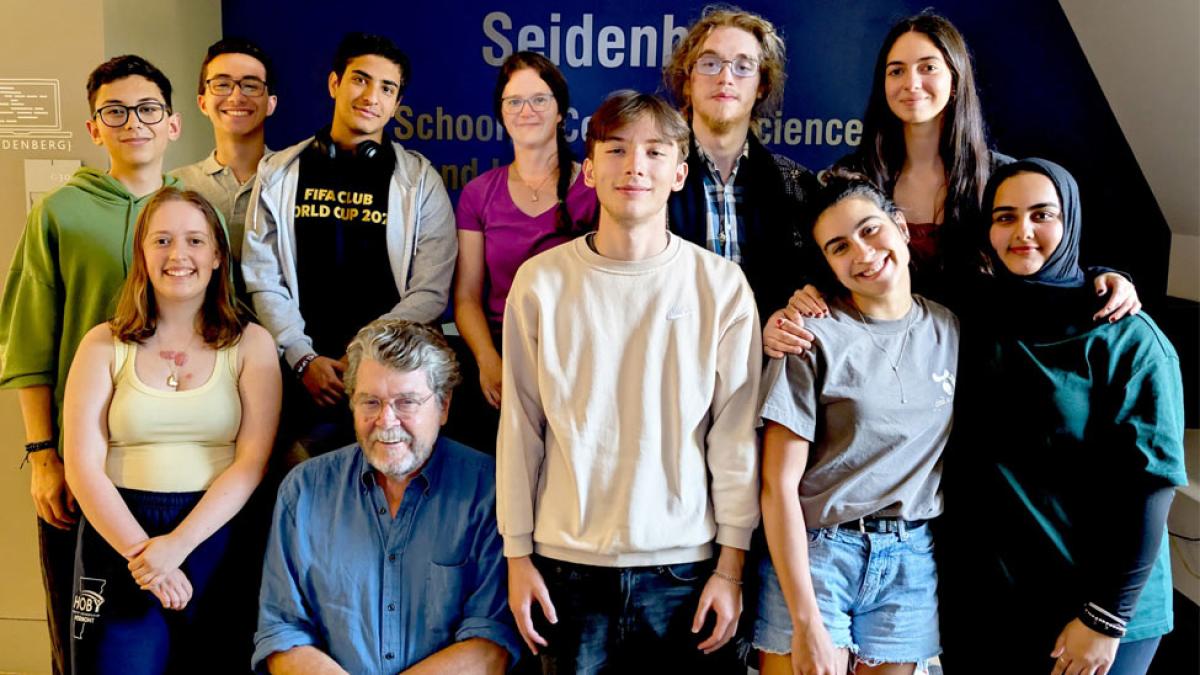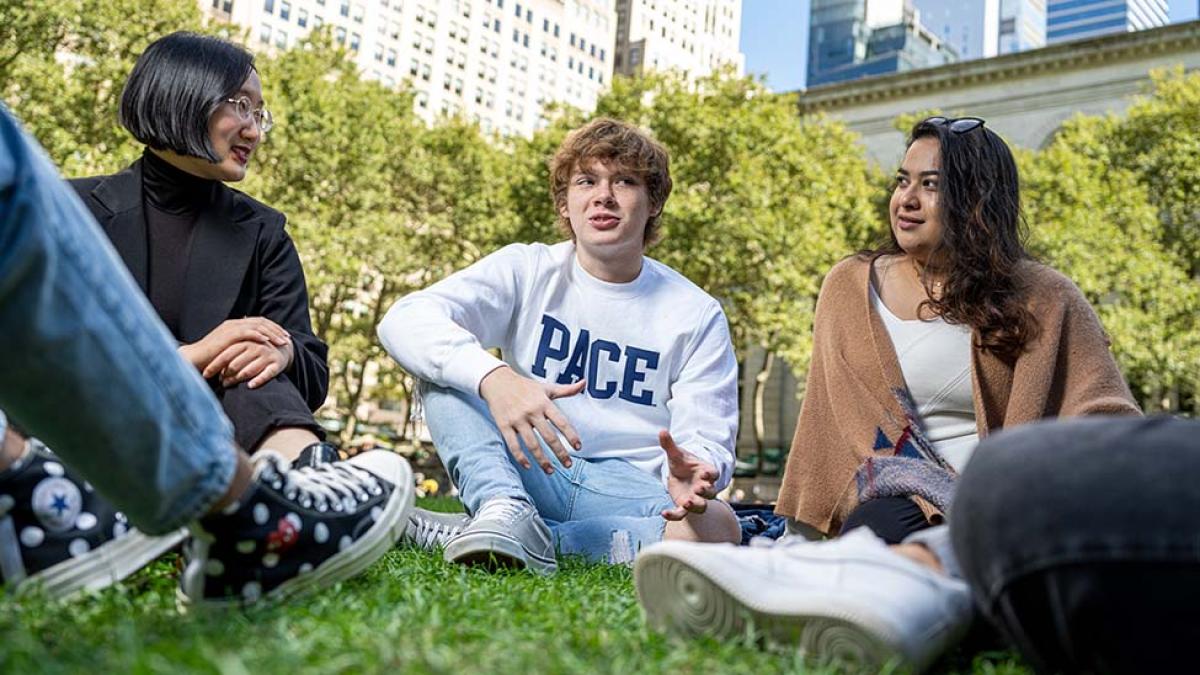
Looking for a wonderful way to meet your colleagues, and learn about key issues impacting staff? Attend a Staff Council meeting!
The Westchester Staff Council (WSC) and New York Staff Council (NYSC) offer vital platforms for university staff to engage with senior administration and discuss key issues.


Staff members! Looking for a wonderful way to meet your colleagues, learn about key issues impacting staff, and perhaps join a committee?
The Westchester Staff Council (WSC) and New York Staff Council (NYSC) offer vital platforms for university staff to engage with senior administration and discuss key issues. Open to all staff members, with voting rights reserved for full-time staff, each council meets monthly (sometimes jointly) from September through May, and wrap up the year by hosting a fun, community-building picnic. Interested in more involvement? Join one of the various committees like the Benefits, Faculty, or Safety Committees and represent your peers!
Each Staff Council’s Executive Committee, composed of the Chairperson, Vice-Chairperson (or Co-Chairpersons), Secretary, and Treasurer, is elected by voting members for one-year terms, with a maximum of four consecutive terms per position. Staff council co-chairs play an essential role in advocating for staff at the Board of Trustees' Staff Affairs Committee meetings held twice annually. The Executive Sponsor to the Staff Councils who is a member of Operations Committee, guides them on surfacing concerns and has been working with them to draft a new charter, with the aim of clarifying how they engage in university governance. Alongside the elected staff representative, staff council co-chairs gain exciting opportunities to interact with board members and senior leaders, obtain experience speaking and presenting to a committee, and to represent colleagues and fellow coworkers on numerous occasions.

For more information, check out the websites for the NY Staff Council or the Westchester Staff Council.
Pace University Recognized in Wall Street Journal’s Best Colleges 2026 Rankings
Pace advanced 15 places in The Wall Street Journal’s 2026 Best Colleges Rankings, earning recognition for student success, affordability, and diversity. With a perfect diversity score of 100, Pace stands out as a leader in access and opportunity.


The Wall Street Journal’s America’s Best Colleges 2026 Rankings have been released, and Pace University has once again earned national recognition for delivering value, student success, and diversity.
For 2026, Pace ranked #242 out of 584 colleges, moving up 15 spots from last year. This improvement reflects the continued strength of Pace’s programs and our commitment to preparing students for careers and meaningful lives.
Pace ranked ahead of a number of respected universities, including New York University, the University of Miami, Hofstra University, and the City University of New York. This placement highlights Pace’s ability to deliver high-quality outcomes and opportunities to students at a competitive value.
Pace was also one of just four universities nationwide—including Stanford—to achieve a perfect diversity score of 100. This measure takes into account the ethnic diversity of students and faculty as well as the inclusion of students from lower-income families and those with disabilities.
This recognition underscores Pace’s long-standing mission of providing access and opportunity to students from all backgrounds, and it affirms the value of the diverse, inclusive community we continue to build.
The WSJ rankings place the greatest emphasis on student outcomes, such as graduation rates, post-graduate salaries, and the speed with which a college education pays for itself. Additional factors include student and alumni surveys and diversity.
Pace’s strong results across these measures show that our students are well-prepared to achieve professional success while benefiting from an inclusive and supportive educational environment.
As national conversations continue about the value of higher education, these rankings highlight Pace as an institution that delivers measurable results: a cost-effective education that leads to real opportunities, strong career outcomes, and social mobility.
Explore Pace University’s other awards and rankings.
More from Pace
More Pace students than ever—34 across both campuses—have been named UN Millennium Fellows, tackling the world’s biggest challenges through local action and global collaboration. From clean water to climate change, these Go-Getters are making their mark.
Pace University has been awarded more than $3 million from the New York State Department of Health’s Healthcare Education and Life-skills Program (HELP) to establish the College of Health Professions Pathways to Practice Initiative (CPPI.
Driven by her own story of resilience, Ipshita Ray, PhD, is leading Lubin’s new Center for Leadership and Emotional Intelligence in collaboration with Harvard’s Leadership and Happiness Laboratory. Learn how this new program is helping equip the next generation of leaders through the science of happiness.
Press Release: Deaf West Theatre and Pace University’s Sands College of Performing Arts Launch Artist-in-Residence Program
Beginning this fall, Pace University’s Sands College of Performing Arts and Deaf West Theatre, the Tony-honored company known for pioneering bilingual productions in American Sign Language (ASL) and English, are launching a groundbreaking artist-in-residence program focused on bridging performance and accessibility in musical theater training.
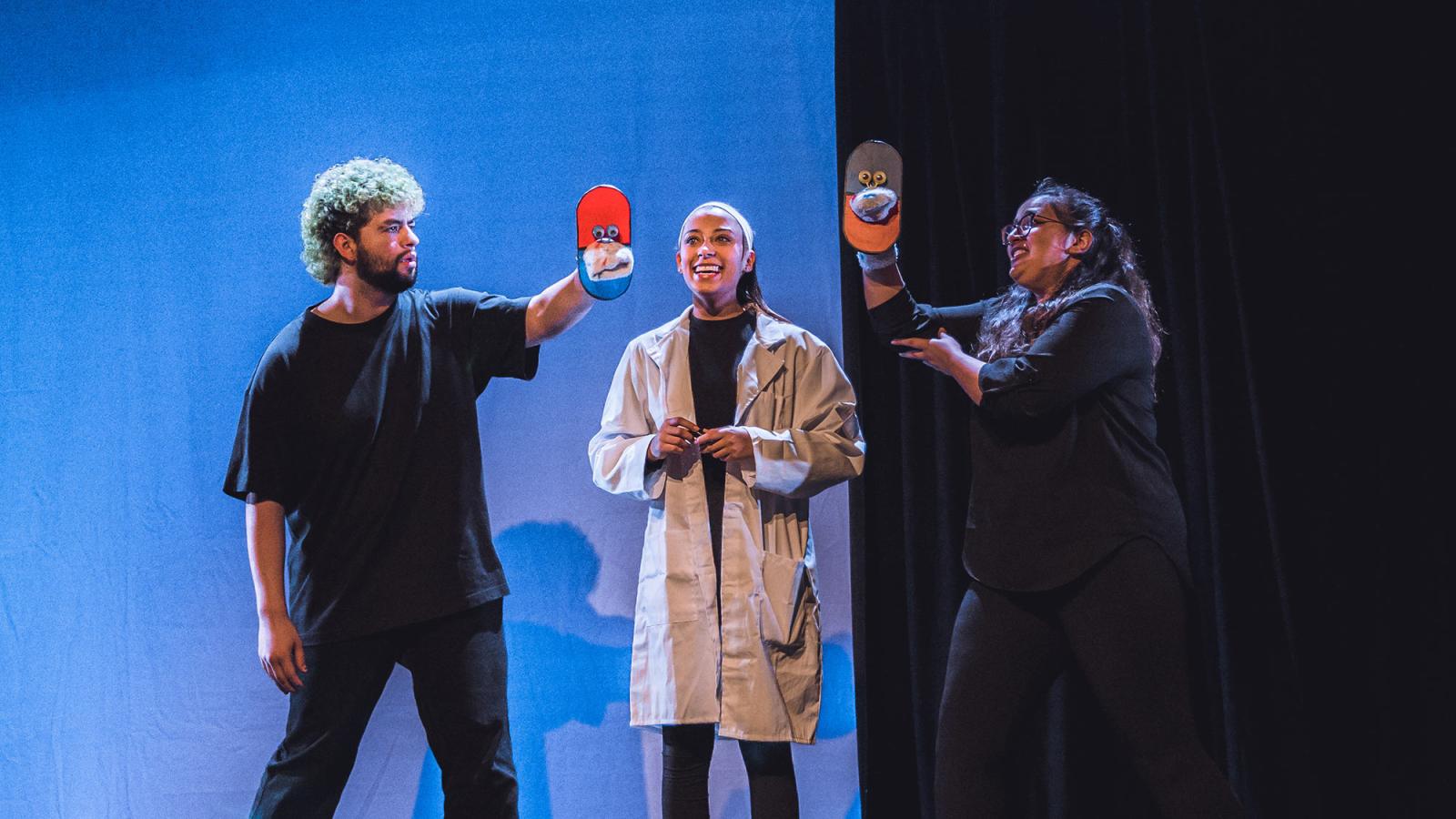
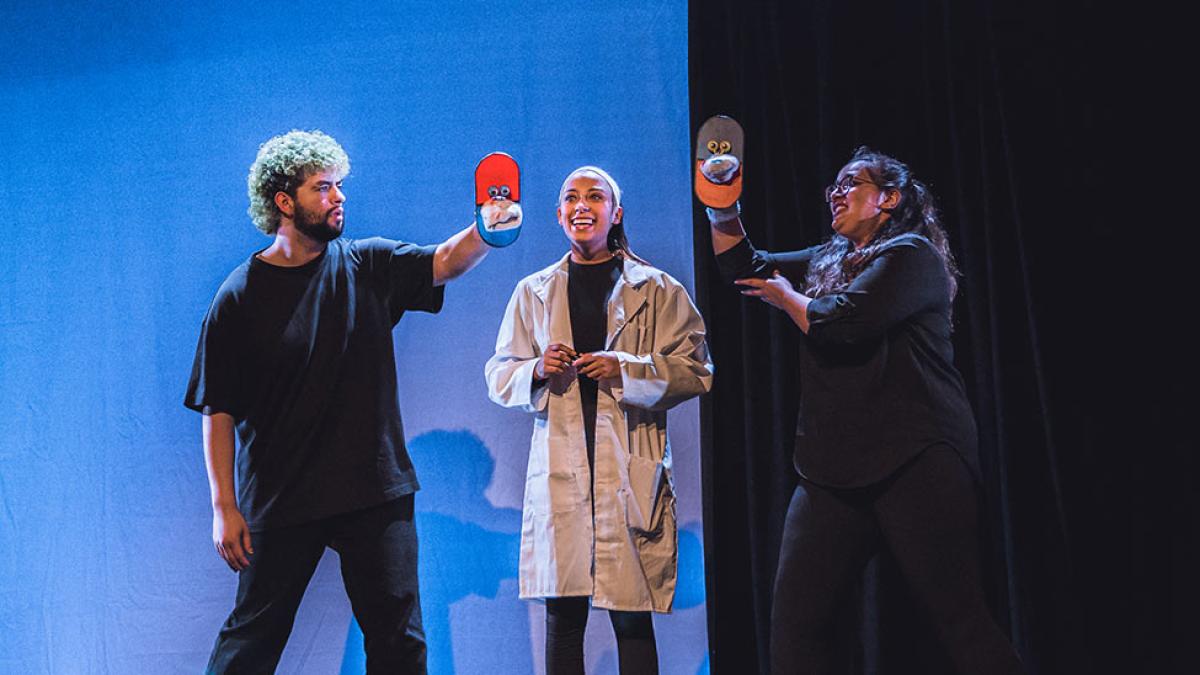
First-of-its-kind American Sign Language (ASL) music theory lexicon to expand inclusive music education
Building a more accessible future for musical education in American Sign Language (ASL)
Beginning this fall, Pace University’s Sands College of Performing Arts and Deaf West Theatre, the Tony-honored company known for pioneering bilingual productions in American Sign Language (ASL) and English, are launching a groundbreaking artist-in-residence program focused on bridging performance and accessibility in musical theater training.
A key element of the residence program is the ASL Music Theory Lexicon Project — a first-of-its-kind, multi-phase initiative led by Deaf West Theatre to develop a comprehensive ASL lexicon for music theory. The goal is to expand access for deaf and hard-of-hearing students by creating clear, accurate signs for complex musical concepts such as rhythm, pitch, harmony, and notation — concepts that historically lack standardized visual language. The program will be broken up into multiple phases, with Phase I occurring during the fall semester with Sands College of Performing Arts musical theater BFA students and continuing through the 2025–2026 academic year.
“Sands College of Performing Arts admitted a deaf student — and an alumnus of our stages — into their prestigious BFA musical theatre program for the first time,” said DJ Kurs, artistic director of Deaf West Theatre. “While this is an extraordinary moment, it also raised an urgent question for us: How could we ensure that this student — and the many deaf artists who will follow — receive equitable access to the musical education their hearing peers take for granted? At Deaf West, we believe access is a creative asset, not a limitation. This residency with Sands College gives us the chance to create new tools for artists, ensuring that music and performance education are open to everyone.”
This collaborative residency will immerse Pace students in Deaf West’s inclusive performance practices from the very beginning of their theater training. Through class sessions and intensive workshops, students will explore Deaf West’s history, methodology, and impact.
“This partnership exemplifies our mission to prepare students not just for performance, but to be changemakers in the industry,” said Amanda Flynn, Ed.D., program head of musical theater at the Sands College of Performing Arts. “By engaging with Deaf West’s inclusive methods, our students are learning how access and innovation go hand in hand. This is the future of the performing arts — and our students are at the forefront.”
The residency is supported by an endowed fund at the Sands College of Performing Arts, which brings visiting artists to campus each semester to enhance the education and skills of Musical Theater undergraduates. Each artist collaborates with students on setting stage pieces, rehearsals, and providing an authentic, real-world performing arts experience.
Students will also gain hands-on experience with ASL musical staging and choreography under the guidance of Jennifer Weber, acclaimed choreographer known for Deaf West and Center Theatre Group’s co-production of Green Day’s American Idiot, Broadway’s & Juliet, and KPOP. Weber will be joined by ASL Choreographer, Daniela Maucere. Students will learn how movement adapts to support visual storytelling. In a bilingual rehearsal environment that values both deaf and hearing perspectives, they’ll discover how true collaboration breaks down barriers and expands storytelling.
“This residency represents what Sands College of Performing Arts is all about,” said Jennifer Holmes, Ph.D., dean of Sands College of Performing Arts. “We’re building an ecosystem where students learn from visionary artists who are shaping the future of the field. Deaf West’s approach to access, creativity and community is something we want every student to experience.”
The ASL Music Theory Lexicon Project was born not just from a desire to translate words into signs, but from a need to translate opportunity into equity. This project is a direct response to the voices of deaf artists who deserve full access to musical training — not as an accommodation, but as a right. Led by Christopher Tester, project lead and deaf subject matter expert; Christopher Lloyd Bratten-Zappala, project lead and music theory subject matter expert; and DJ Kurs, artistic director of Deaf West Theatre.
By the end of the residency, students will understand the foundations of Deaf West’s theatrical model, gain practical experience with ASL musical staging, further understand the intersection of deaf culture and mainstream theatre, and develop tools to approach access and inclusion as creative assets — not limitations.
“As both a proud Pace Musical Theater alum and a CODA — child of deaf adults — this residency is deeply personal to me,” said Jeff Perri '12, managing director of Deaf West Theatre. “To return to my alma mater and share our process with the next generation of artists is incredibly special. This isn’t just about teaching technique — it’s about giving students access to the moment of creation, where deaf and hearing cultures meet to build something greater together.”
About Deaf West Theatre
Committed to innovation, collaboration, training, and social change, Deaf West Theatre serves as the artistic bridge between the deaf and hearing worlds.
Founded in Los Angeles in 1991, Deaf West Theatre is dedicated to advancing accessibility, equity, and representation for the deaf community through groundbreaking arts projects. By engaging both deaf and hearing creatives and audiences, we amplify deaf perspectives and expand the definition of cultural life. As a vital force in the arts landscape, we elevate deaf artists and stories, ensuring visibility and impact in entertainment while fostering a more inclusive and dynamic artistic world.
Deaf West Theatre presents a dynamic blend of adaptations and original works in both voice and American Sign Language. Our productions feature deaf and hearing actors, directors, designers, and technicians, ensuring a rich and inclusive artistic environment. The visual elements of our shows, from sets and lighting to costume designs, uphold the highest standards of excellence, reflecting the unique visual aesthetic of our theater.
Recent and past productions include a new production of Green Day’s American Idiot, in a co-production with Center Theatre Group; the groundbreaking production of Beethoven’s only opera Fidelio with the Los Angeles Philharmonic conducted by Maestro Gustavo Dudamel; a new play adaptation of Oedipus at the Getty Villa Museum directed and adapted by Jenny Koons; The Solid of Life of Sugar Water by Jack Thorne; Our Town, in a co-production with the Pasadena Playhouse; Edward Albee’s At Home at the Zoo, in a co-production with the Wallis Annenberg Center for the Performing Arts; Spring Awakening the Musical, which transferred from Inner-City Arts to the Wallis and then to Broadway (three Tony Award® nominations including Best Revival of a Musical); American Buffalo (Los Angeles Times “Critic’s Choice”); Cyrano, a co-production with the Fountain Theatre (Los Angeles Drama Critics Circle Award for Outstanding Production); Big River the Musical (Los Angeles Drama Critics Circle and Backstage Garland awards for Best Musical in its L.A. premiere, a Tony Award® nomination, and four Drama Desk Awards on Broadway); Pippin, produced at the Mark Taper Forum in a co-production with Center Theatre Group; Sleeping Beauty Wakes, also a co-production with Center Theatre Group, presented at the Kirk Douglas Theatre; Oliver! (Ovation Award for Best Musical) and A Streetcar Named Desire (Ovation Award for Best Play). In 2005, DWT was selected to receive the Highest Recognition Award by the Secretary of Health and Human Services for its “distinguished contributions to improve and enrich the cultural lives of deaf and hard of hearing actors and theater patrons.” To learn more, visit the Deaf West website.
David J. Kurs (Artistic Director) became the Artistic Director of Deaf West Theatre in 2012. He has produced award-winning plays and musicals, including Spring Awakening, which he shepherded from its beginnings as an intimate 99-seat theater production in Los Angeles before it went on to Broadway, earning multiple Tony Award® nominations and the world tour of Fidelio, in conjunction with Gustavo Dudamel. Kurs sees his role at Deaf West as integral to his continued advocacy and activism within the deaf community.
Jeff Perri (Managing Director) currently serves as the Managing Director at Deaf West since 2022. With a knack for high-level management and marketing, Jeff brings experience from the entertainment industry, specializing in Public Relations, Brand Development, Strategy, and Producing. Prior to joining Deaf West, Jeff refined his expertise within the advertising sector, specializing in entertainment and non-profit initiatives. His portfolio includes contributions to a diverse range of clients from well-known corporations to Tony Award®-winning plays and musicals. As a Child of Deaf Adult/s (CODA), Jeff brings a unique perspective to foster connections between deaf and hearing communities in entertainment. Rooted in a commitment to meaningful change in the arts, Jeff earned a Bachelor of Fine Arts degree in Musical Theater from Pace University.
About Pace University
Since 1906, Pace University has been transforming the lives of its diverse students—academically, professionally, and socioeconomically. With campuses in New York City and Westchester County, Pace offers bachelor, master, and doctoral degree programs to 13,600 students in its College of Health Professions, Dyson College of Arts and Sciences, Elisabeth Haub School of Law, Lubin School of Business, Sands College of Performing Arts, School of Education, and Seidenberg School of Computer Science and Information Systems.
About Sands College of Performing Arts
Sands College of Performing Arts at Pace University is a cutting-edge performing arts school that nurtures artistic innovation and develops future leaders and changemakers in the profession. Renowned for its diverse range of highly-ranked programs, Sands College is committed to cultivating top-talent performers, designers, and production professionals. From Hollywood to Broadway, Sands College students and alumni have appeared in major film and television productions and theater performances such as & Juliet, A Beautiful Noise, A Strange Loop, Almost Famous, Hadestown, Hamilton, Kimberly Akimbo, MJ The Musical, Moulin Rouge, Ohio State Murders, Wicked, and the Radio City Christmas Spectacular. Recognized by Playbill as one of the 10 most represented colleges on Broadway, Sands College continues to inspire the next generation of artists both on stage and screen.
Press Release: 34 Pace University Students Selected for 2025 United Nations Millennium Fellowship
Thirty-four students from Pace University have been selected to participate in the United Nations Academic Impact (UNAI) and Millennium Campus Network (MCN) Millennium Fellowship, a highly selective global leadership development program.

Students from NYC and Pleasantville campuses are among the top 4% globally chosen for the prestigious United Nations academic program.
Thirty-four students from Pace University have been selected to participate in the United Nations Academic Impact (UNAI) and Millennium Campus Network (MCN) Millennium Fellowship, a highly selective global leadership development program.

This is the fifth consecutive year Pace students have been chosen for the competitive program -- and it’s the largest cohort to date. Students from both New York City and Pleasantville campuses representing the Dyson College of Arts and Sciences, Lubin School of Business, School of Education, Seidenberg School of Computer Science and Information Systems, and College of Health Professions were among just 4,000 students to earn the honor globally from a record-breaking pool of 60,000+ applicants across 7,500+ campuses in more than 130 countries, with just 4% of institutions selected to host fellows.
During the fall semester, Millennium Fellows are chosen for their commitment to advancing the United Nations' 17 Sustainable Development Goals (SDGs) through impactful, student-led projects that address issues such as sustainability, education, health equity, reproductive justice, and environmental protection.
“At Pace University, we are proud to congratulate our Millennium Fellows, part of the largest group of Fellows Pace has ever had selected for this prestigious global program,” said Marvin Krislov, president of Pace University. “These students exemplify the mission of the Millennium Fellowship, which empowers students to advance the United Nations Sustainable Development Goals through leadership, service, and innovation. From building environmental awareness through creative expression to addressing housing insecurity and strengthening support for marginalized communities, their projects reflect the best of what it means to be part of the Pace Community. We celebrate their commitment and look forward to seeing how their work continues to grow and inspire.”
Among this year’s cohort is a first-of-its-kind international partnership. Thanks to the leadership of Seidenberg Professor John Cronin, 19 members of Pace’s Blue CoLab are collaborating with students from Finland’s Häme University of Applied Sciences to develop a bilateral action plan supporting SDG 6: Clean Water and Sanitation. The goal: establish the global right-to-know what is in the water we drink, with a formal proposal to be presented at the United Nations this October when Finnish students visit Pace University. The Blue CoLab’s work has been institutionalized over recent years, continuing to advance this right-to-know movement through expanded research, advocacy, and international collaboration, laying a foundation the 2025 Fellows are now building upon.
Projects from this year’s Fellows include initiatives on human trafficking awareness, technical literacy, sustainable dining practices, refugee and asylum aid, mental health, and more.
“The Millennium Fellowship represents an opportunity for me to connect with like-minded peers and mentors who are enthusiastic about social justice,” said Briana Pereira Duarte, a criminal justice major and campus co-director from Mineola, New York. “This experience will grow my project on raising awareness and policy change around gender-based violence, specifically female genital mutilation, and reinforce my commitment to equity and justice.”
“The Millennium Fellowship to me means opportunity—a chance to make a change and to be part of a community,” said Aziz Oguntade, a computer science major from Bronx, New York. “My project connects with quality education and aims to give people a greater understanding of the technological devices they use every day, especially those who may not have access to resources. Free and accessible technological literacy for all is my goal.”
“This is one of the most transformative programs in higher education as it empowers students to ‘be the change they want to see in the world’ on a local level,” said Sue Maxam, Assistant Provost for Wellness at Pace University. “Civic engagement and experiential learning are core values at Pace and central to the mission of the Millennium Fellowship, making this an ideal opportunity for our students.”
Pace University’s Millennium Fellowship record has grown impressively over recent years: 7 fellows in 2021, 15 in 2022, 30 in 2023, 25 in 2024, and now 34 in 2025.
Notable alumni projects include “Fare Trade Initiative,” a student-led initiative to combat campus food insecurity that has become a permanent resource on campus. Additional student-led efforts that have been institutionalized include a project addressing period poverty, which established sustainable access to free menstrual products on campus, and an initiative focused on reducing the student carbon footprint, which informed new sustainability measures now in place at Pace.
Students will complete their projects during the Fall 2025 semester, culminating in a Global Graduation Ceremony on Friday, November 21, 2025, alongside Fellows from around the world.
The 34 Pace students who have been selected for the 2025 cohort are:
- Abigail Colon, Health Science
- Alex Eppinger, Arts and Entertainment Management
- Alondra Gracia, Health Science
- Alonso Manon Mateos, International Management
- Angela Basha, Psychology
- Aziz Oguntade, Computer Science
- Briana Duarte, Criminal Justice – Campus Co-Director
- Caroline Zanuto-Winter, Computer Science
- Diana Aldabergenova, Psychology
- Dillon Talactac, Information Technology
- Elizaveta (Lisa) Sinitcyna, Business Management – Campus Co-Director
- Graig Decembre, Information Technology
- Isaac Lasso Younes, Computer Science
- Kayla Nestfield, Global Studies
- Kiley Cosgrove, Computer Science
- Mamoun Edfouf, Undecided
- Mariam Talakhadze, Finance – Campus Co-Director
- Mimi Langley, Modern Languages and Cultures
- Nailah Brown, Computer Science
- Natasha Baker, English Language and Literature
- Nkechi On (Colene) Munroe, Adolescent Education/Biology
- Noor Huda, Computer Science
- Phoenix Ellrodt, Information Technology
- Rachel Parker, Communications
- Sadia Oishika, Computer Science
- Samantha Sergi, Psychology
- Seth Jarmol, Political Science
- Silas Gonzalez, Computer Science – Campus Co-Director
- Skyler Flynn, Communications
- Spechal Nickey, Biology
- Symphonie Ivory, Art
- Varshita Korrapati, Political Science
- Yesenia Erazo-Tequianes, Political Science and Peace & Justice Studies
- Zachary Cherenfant, Information Technology.
About Pace University
Since 1906, Pace University has been transforming the lives of its diverse students—academically, professionally, and socioeconomically. With campuses in New York City and Westchester County, Pace offers bachelor, master, and doctoral degree programs to 13,600 students in its College of Health Professions, Dyson College of Arts and Sciences, Elisabeth Haub School of Law, Lubin School of Business, Sands College of Performing Arts, School of Education, and Seidenberg School of Computer Science and Information Systems.
Elisabeth Haub School of Law at Pace University Honors New York State Inspector General Lucy Lang with the 2025 Robert S. Tucker Prize for Prosecutorial Excellence
The Elisabeth Haub School of Law at Pace University honored New York State Inspector General Lucy Lang with the 2025 Robert S. Tucker Prize for Prosecutorial Excellence at a ceremony on September 30, 2025, at Pace University’s New York City campus.


The Elisabeth Haub School of Law at Pace University honored New York State Inspector General Lucy Lang with the 2025 Robert S. Tucker Prize for Prosecutorial Excellence at a ceremony on September 30, 2025, at Pace University’s New York City campus.
IG Lang, who has served as New York State’s Inspector General since 2021, was recognized for her exceptional leadership and integrity in overseeing public sector investigations, her commitment to fairness and transparency, and her visionary approach to accountability and reform.
“IG Lang represents the highest ideals of public service and prosecutorial excellence,” said Pace Haub Law Dean Horace E. Anderson Jr. “She has brought an innovative, principled, and compassionate approach to oversight, reform, and the responsible use of prosecutorial power. Her career is a model for our students and for all who seek to serve the cause of justice.”

Following the presentation of the award by Kristine Hamann, Executive Director of the Prosecutors’ Center for Excellence and member of the Tucker Prize Jury, IG Lang addressed an audience of Assistant District Attorneys and prosecutors from across New York and beyond, joined by civic leaders, public servants, and attorneys, as well as distinguished students and faculty from the Pace Haub Law.
During her remarks, IG Lang reflected on the importance of integrity and fairness in prosecutorial work at a time when, as she noted, “so many of the most excellent prosecutors in our city and our country are being truly tested.” She emphasized that true prosecutorial excellence means speaking truth to power, taking on hard cases, and “operating not just with integrity, but within the bounds of law, with decency and civility.”
IG Lang also underscored the critical role of procedural justice in strengthening public trust. “The procedures used to make decisions must be fair and impartial, and the people who make those decisions must be respectful of the rights and dignity of all involved,” she said. “When individuals feel seen and heard, even when outcomes are difficult, trust in institutions grows.”
We need people in government, especially on the integrity side of government, who aren’t afraid to do the right thing. We should all be very grateful that we have a public servant like IG Lang at the helm.
—Robert S. Tucker
Drawing on her personal and professional journey, IG Lang recounted how early experiences with victims’ families, as well as her work creating a groundbreaking course that brought prosecutors and incarcerated individuals into the same classroom, shaped her commitment to fairness and empathy. She spoke movingly of her continued efforts as Inspector General to advance justice in New York’s correctional system, including investigations that have transformed drug testing practices, curtailed the use of solitary confinement, and shed light on systemic abuses.
Robert S. Tucker, whose endowment funds the prize, praised Lang’s contributions to public integrity: “We need people in government, especially on the integrity side of government, who aren’t afraid to do the right thing. We should all be very grateful that we have a public servant like IG Lang at the helm.”
IG Lang was appointed by Governor Kathy Hochul as New York State’s 11th Inspector General in October 2021. A lifelong New Yorker, attorney, and educator, she leads statewide investigations into allegations of fraud, corruption, and abuse within New York State government. Under her leadership, the Office of the Inspector General has expanded transparency and technology initiatives, strengthened protections for vulnerable populations, and fostered a multidisciplinary approach to public integrity enforcement.
The Robert S. Tucker Prize for Prosecutorial Excellence is awarded annually to an individual or a group of individuals who have made outstanding contributions to the field of criminal prosecution and who demonstrate excellence in prosecutorial practice. Honorees are selected each year by a jury comprising former prosecutors and Haub Law faculty members. The award ceremony brings together prosecutors from across the region and state, civic leaders, members of the judiciary, New York City government and the Haub Law community to recognize these distinguished individuals for their work. Past Award Recipients include Special Narcotics Prosecutor Bridget G. Brennan, Bronx District Attorney Darcel D. Clark and the Office of the Bronx District Attorney, Brooklyn District Attorney Eric Gonzalez, former New York Attorney General Barbara Underwood, and Richard A. Brown, the late Queens District Attorney, among others.
Pace Law Dean Horace Anderson Looks To New Generation Of Lawyers To Lead
Elisabeth Haub School of Law Dean Horace Anderson is profiled by amNewYork for his mission-driven leadership at Pace Haub Law. He emphasizes that lawyers wield “great power” and must embrace “great responsibility,” highlighting programs such as the Sustainable Business Law Program and the Access to Justice Project, where students develop tools to help tenants document landlord communications. Dean Anderson also reflects on his own journey as the son of Jamaican immigrants and his commitment to mentoring first-generation students, ensuring they graduate ready to serve and lead.
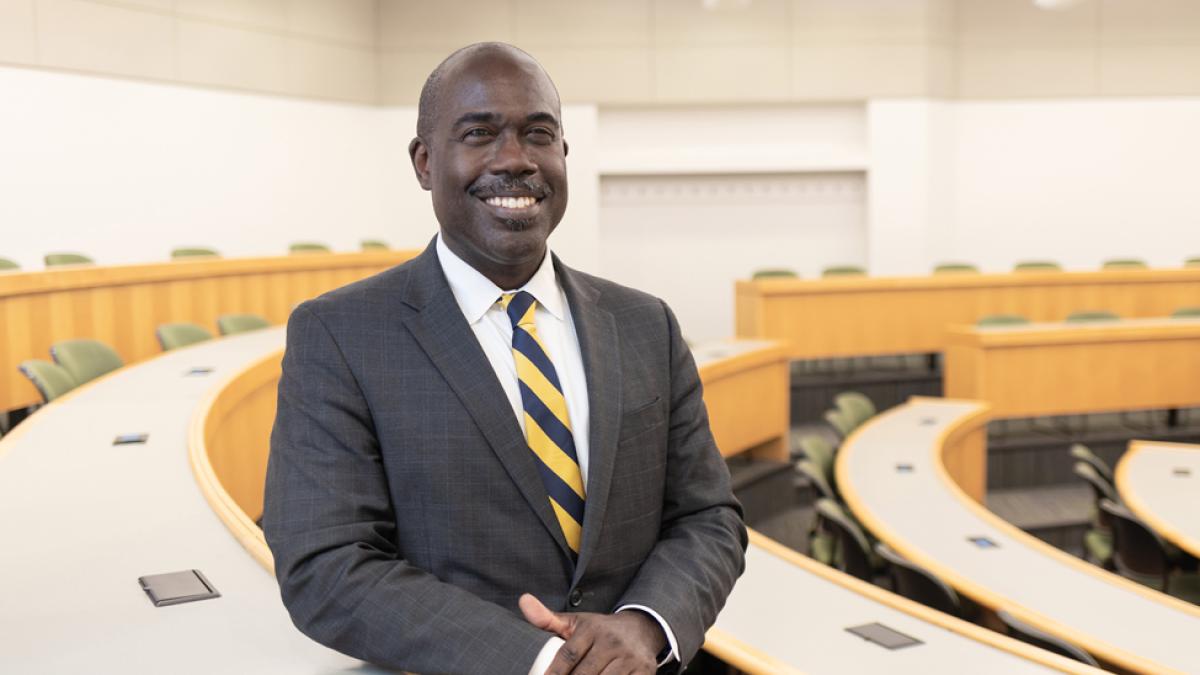
Mamdani Still Favored In NYC Mayor's Race
Dyson Political Science Professor Laura Tamman tells Newsday that Mayor Adams’ exit from the mayoral race is “a major shake-up” that redefines the contest. Professor Tamman notes that the race’s new dynamics underscore the importance of coalition-building and voter mobilization.
A Shameful Indictment
Professor Gershman pens an op-ed in The New York Law Journal, titled “A Shameful Indictment,” which denounces the lack of prosecutorial accountability and calls for urgent reforms to protect fairness and integrity in the justice system.
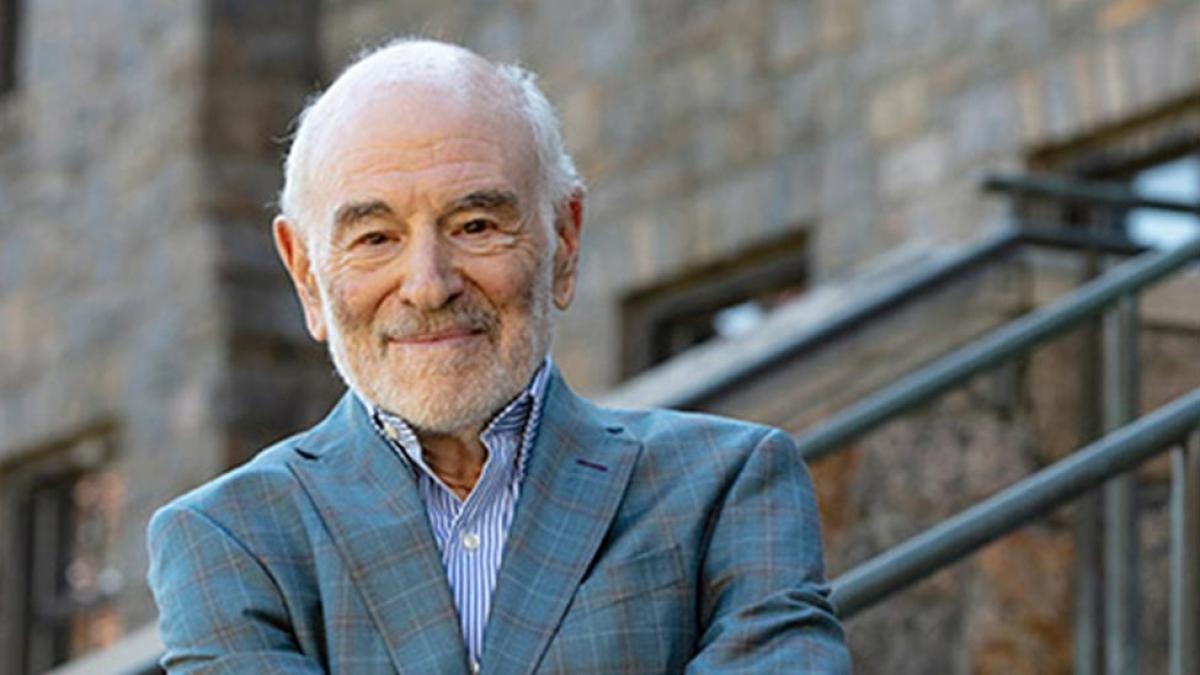
Hidden Crisis Behind Korea’s Suicide Numbers
Dyson Communication and Media Studies Professor Seong Jae Min writes a piece in The Korea Times exploring South Korea’s deepening suicide crisis. He argues that behind the troubling statistics lies a complex interplay of economic stress, societal pressure, and the influence of cultural taboos around mental health.
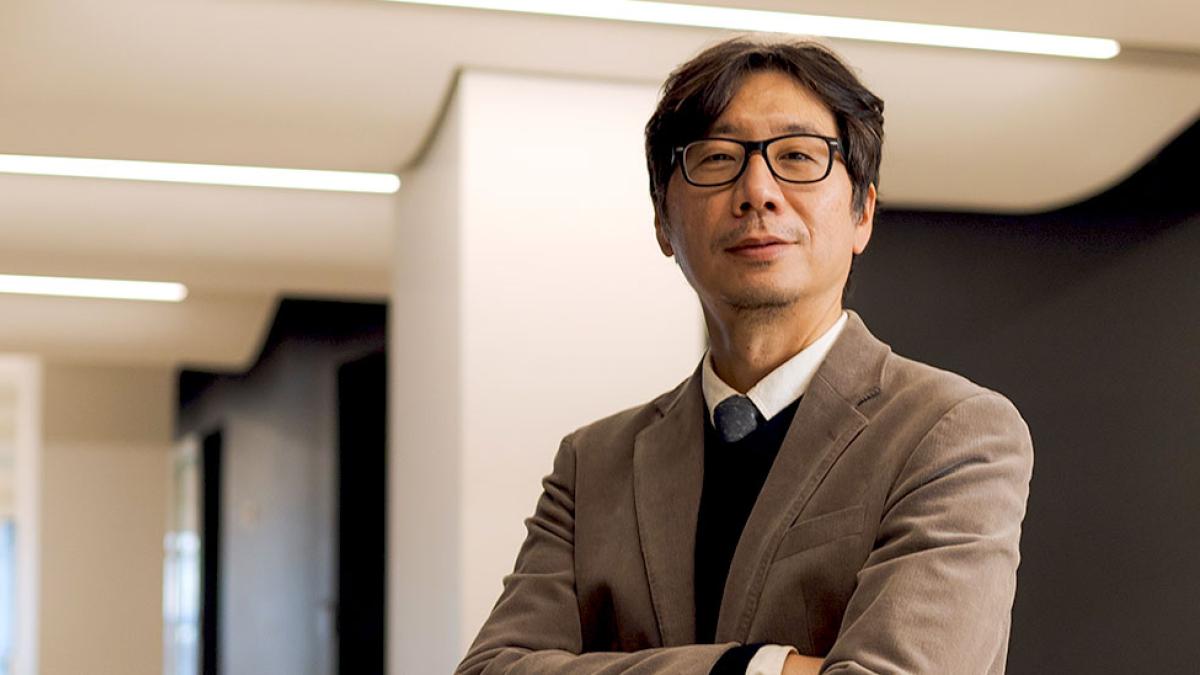
6 Supplements That Could Lower High Blood Pressure
CHP Director of the Nutrition and Dietetics Teaching Kitchen Mary Opfer speaks to News Break about supplements that may support healthy blood pressure, highlighting the role of omega-3 fatty acids in vascular health.
